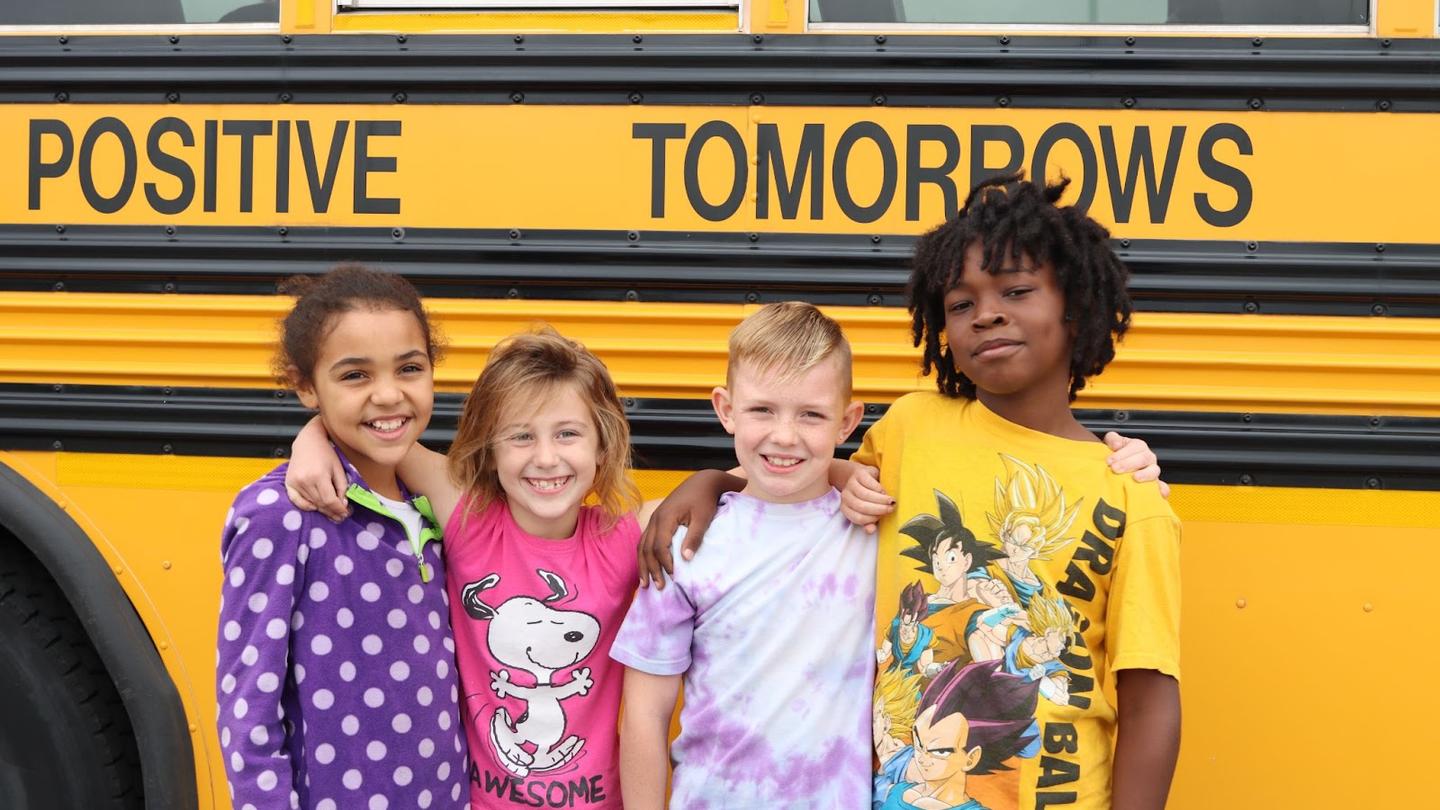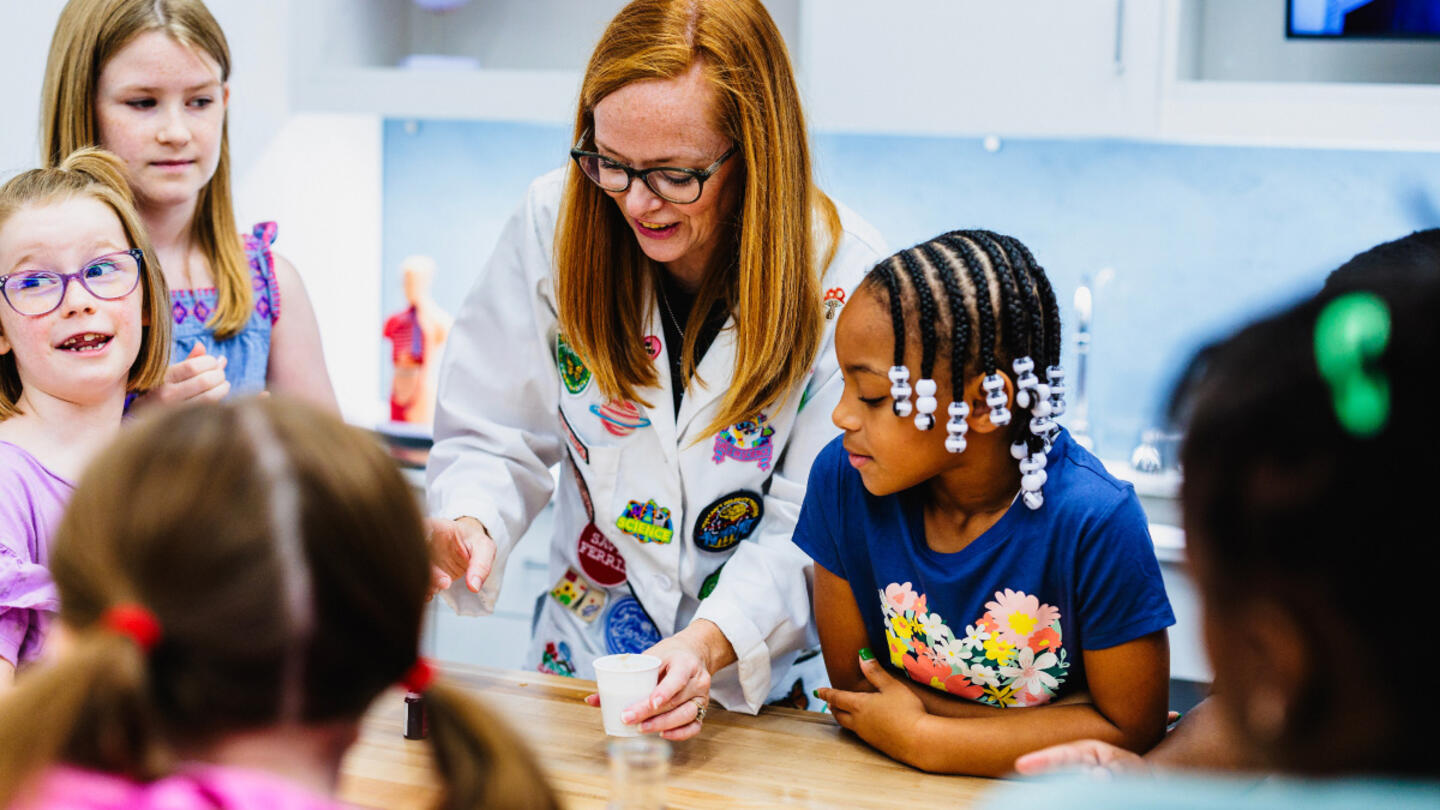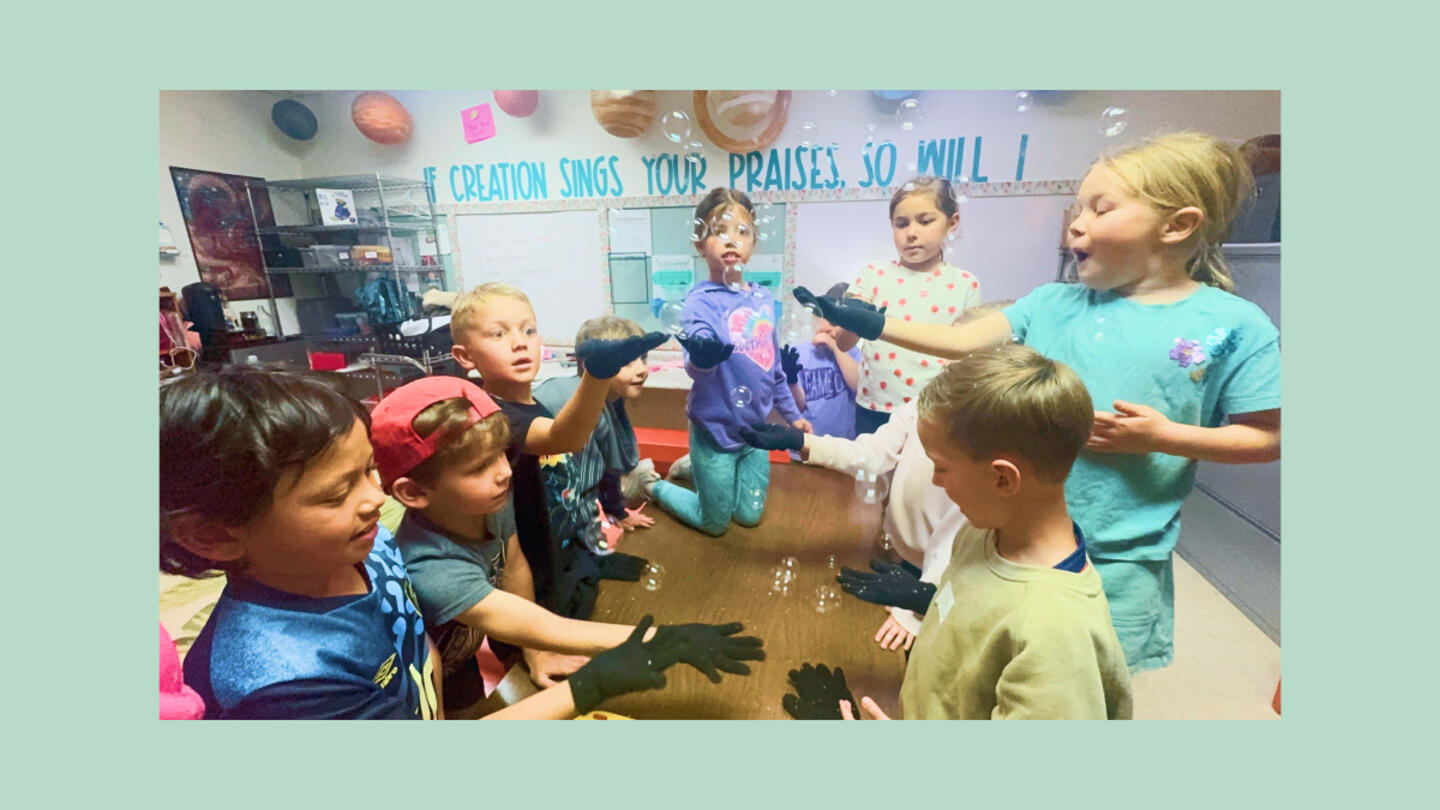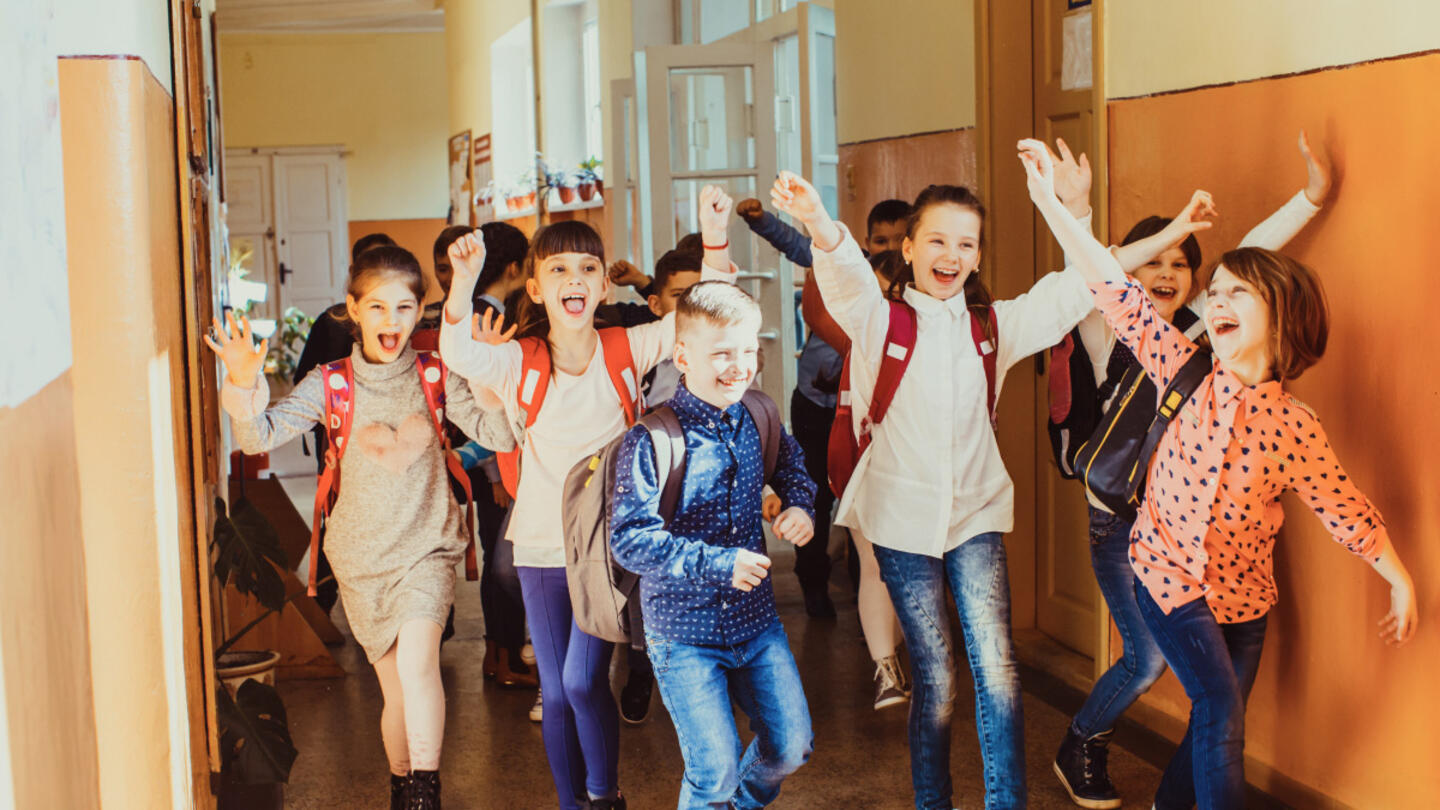At Positive Tomorrows, if a child needs to sleep during class, that's OK.
As the only school in Oklahoma dedicated exclusively to children and families experiencing homelessness, Positive Tomorrows designs its curricula and daily schedules to be flexible, allowing them to adapt to the unique needs of the children.
"Sometimes a kiddo just needs to go outside and just take a walk. And that's okay. Here, teachers have a variety of tools to meet each kiddo's specific needs, no matter what those needs are," says Positive Tomorrows President and CEO Margaret Creighton.
"We've got a lot of congregate living happening with our families, families living in tents and moving around from place to place multiple times a week. Sleep isn't always the thing that our kids have the luxury of having, so we make sure that if they need to take a nap, that's okay."
Located in Oklahoma City, Positive Tomorrows modifies standardized academic curriculum to address the whole student holistically, teaching them academics while also healing the internal struggles that homelessness often leaves them with. The school provides transportation to and from the shelter, motel, or other location where the student is currently staying, while also helping students access medical services and obtain proper identification.
At a time when all families are considering how school systems can better serve the whole person, Positive Tomorrows is empowering children to pursue the best version of themselves by equipping them with tools to build self-confidence.

The only school for children experiencing homelessness in Oklahoma adapts to students' needs, not the other way around
Positive Tomorrows started in 1989 after the Oklahoma City mayor's task force on homelessness identified that some children without homes were not attending public schools because they lacked proof of residence, a birth certificate, or other necessary documentation.
Today, Positive Tomorrows — which serves students up until the sixth grade — provides real-world skills and an adaptive environment that is inclusive and addresses the unique challenges youth experiencing homelessness face.
This involves viewing educational success more broadly, encompassing not only a child's performance inside the classroom but also the conditions that influence their ability to thrive at home.
This means no standardized textbooks or worksheets. Rather, Positive Tomorrows develops individualized education plans that account for offering transportation to and from school each day, no matter how often a student's living situation changes; providing students with hot food, snacks, and meals over the weekends; leading field trips to pools, grocery stores, movie theaters, and other common places many students have not had a chance to visit; and, yes, letting them nap when needed.
"We're not going to get anywhere educationally if they don't have enough rest," Creighton points out.
So far, Positive Tomorrows has provided 234 health check-ups, 935 mental health services, and nearly 40,000 meals for students. In-school case managers work with every student's family to work toward creating a nurturing environment at home that maximizes the child's potential for success.
Focusing on these needs doesn't detract from the quality of academic education being offered, either: Positive Tomorrows is a fully accredited private school.
"We do things a little bit differently, and we think it's for the best of our kids," Creighton says. "For example, our kiddos are taught some coping skills that they've observed and that they've learned along the way, and we like to help replace those coping skills with healthy things. It would be things that maybe in other schools a kid would be expelled or suspended for. And here we can just help replace those coping skills as long as it doesn't put anyone in immediate danger. So you know, there are some things that we can do to be a little bit more flexible, a little bit more nimble."
Through this inclusive, bottom-up educational approach, Positive Tomorrows empowers students to pursue their own path of self-actualization. This is made possible by the power of community: fostering close relationships between students, educators, and families leads to an enhanced sense of dignity.
"We believe in opening doors for people and not walking through for them, but walking beside them," says Creighton. "And really making sure they have all the resources that they need to make the decisions for their families."
"We're very trauma informed. Everything that we do, from the way that we talk about our kiddos and our families to the spaces that we have in this building — we gather and celebrate things as a family, we eat meals as a family, we experience life together as a family. We have a director of education, not a principal. We talk about our kids as kiddos as a whole or our friends, making sure that we include everyone."
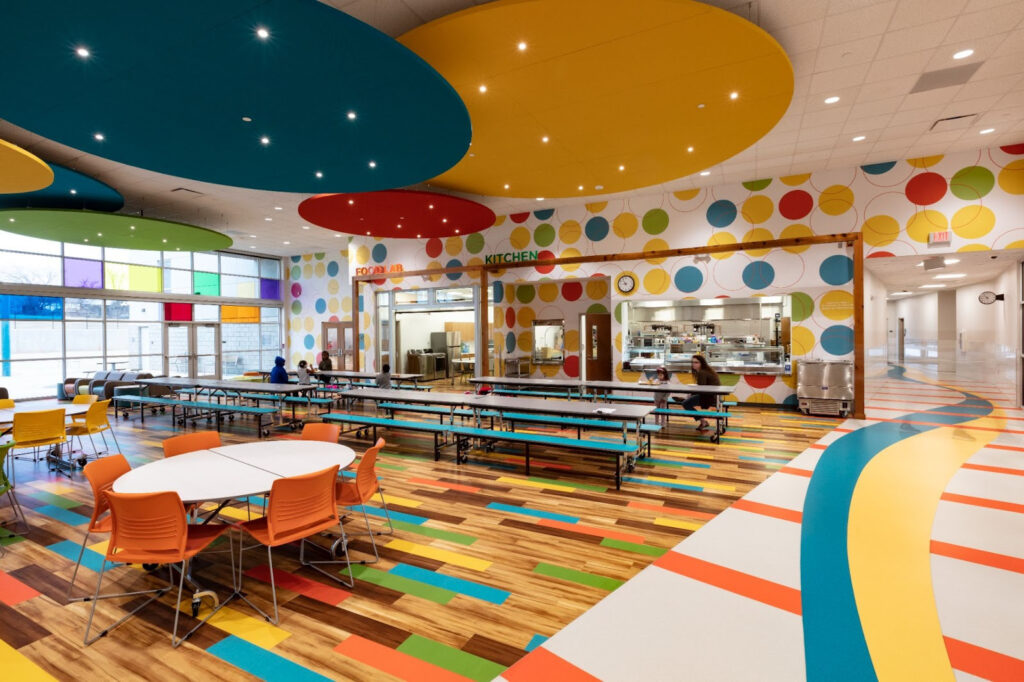
As a school for children experiencing homelessness, Positive Tomorrows measures success a little differently
Success looks very different for a student in Positive Tomorrows than a typical school. Flourishing is gauged less by academic performance and more from a heightened sense of independence, dignity, and engagement in all aspects of a child's life.
"There's a range of success," Creighton says. "For a lot of our kids, success is getting to school. Every day, success is making it through the day. Right now, we've got second graders in our building that have never been to school before because of COVID-19. So for them, catching up all the way is going to be impossible in one year, but we can work on how to participate (actively) in school."
Similarly, traditional testing methods are adapted to the student's unique circumstances.
For instance, at a typical public school, students must attend classes consistently for at least six weeks before they qualify to undergo crucial testing that will place them in the correct programs they need to move forward. Positive Tomorrows removes absenteeism as a marker. By doing this, services can be identified and provided faster, and students can be sent to their next school with the testing and accommodations needed to be successful.
"We test for growth," Creighton says. "So we're not testing for a point in time or making sure that you are meeting a certain criteria to pass a certain grade. We're testing for growth, so we want to see where your deficits are, what you're really great at. And then focus on the things that you need to ensure that we can get you up to grade level."
After their time at Positive Tomorrows, students often still face struggles as they progress into high school — but now, they are more empowered and equipped to tackle these challenges, thanks to a higher sense of individualism and self-esteem.
"Kiddos that leave us, while they may not be homeless anymore, many times, they're still in deep poverty," Creighton describes. "So we still have some hurdles to get across, but they and their parents know how to advocate for their voices when they leave here. And I think that's something that's really powerful."
Positive Tomorrows serves students and families long after graduation
While students undergo transformation at school, parents and guardians work with Positive Tomorrows' case managers to ensure that their home life blossoms as well. Of the families that have participated in Positive Tomorrows, 66% showed improvement in gaining reliable employment; 85% were able to find more stable housing; and 66% obtained increased income. The more students Positive Tomorrows is able to take on, the wider the school's support system will grow, increasing its ability to lift families out of homelessness while empowering students on an individual level.
The Oklahoma City school is planning to add two more classrooms to the building next year, reaching capacity at its current location. Positive Tomorrows' long-term goal is to expand to other states as well.
The relationships built at Positive Tomorrows continue long after a student has left and gone on to high school. The school creates lifelong bonds that support a student and their entire family along their journey out of homelessness.
"They always have us to lean on," Creighton says. "If there's a space in between where they need something and they might be sliding backwards, we can jump in so they don't fall all the way backwards again. We're keeping them moving forward and they're always welcome to come back for break, camps, times in between. That way, we can make sure that they've got everything they need for school going forward."
Case managers help students transition on to their next school, and continually check in with them, providing school supplies and clothing as well as personal encouragement. Additionally, they work with students' families to help them navigate parent-teacher conferences, new grade systems, and other aspects of their next school.
"It's a very welcoming environment here. We want them to know that their next school can be like that too," Creighton says. "Find the right people. Parents, introduce yourself to your kiddos' teacher. Learning to navigate your kiddos' school experience is a really big advantage that we can give them."
Positive Tomorrows is supported by Stand Together Foundation, which partners with the nation's most transformative nonprofits to break the cycle of poverty.
Learn more about Stand Together's K-12 education efforts.
